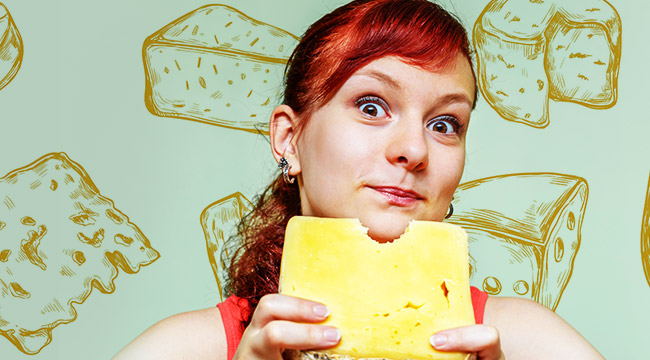
Ira Glass sometimes warns, at the beginning of a piece on This American Life, “This segment acknowledges the existence of sex.” In the same spirit, I’d like to say that this article acknowledges the existence of veganism. (Did you think I was about to break into a steamy sex fueled cheese rant? Next article, I swear). I say that in case you have the tendency to break into wild and uncontrollable fits when someone says they’re a vegan or recommends the vegan lifestyle. As such, I’ll give you a moment to stop reading and/or cover the ears of the young one sitting beside you.
Are we good? Okay. Now let’s talk about cheese.
In his 18th book, The Cheese Trap: How Breaking a Surprising Addiction Will Help You Lose Weight, Gain Energy, and Get Healthy, Dr. Neal Barnard, a nutrition researcher and adjunct associate professor of medicine at the George Washington University School of Medicine and Health Sciences, outlines the problems with cheese in our diet. In the book, he suggests a plant-based vegan lifestyle as the absolutely healthiest way to eat.
That’s not too shocking on its own, but Barnard’s suggestions of giving up cheese (and meat) will still end up being controversial. Not so much due to the science he reports, but because it’s not something we like to hear. No one wants to know that their favorite foods might not be doing them any favors. Nor do we want to hear that these same foods could be genuinely harmful.
From Barnard’s perspective, our beloved cheese is already killing us, so even if it makes us sad (and it does) to learn that that gouda and cheddar aren’t our friends (sworn enemies, in fact) he has a duty to inform us of what they’re doing to our insides. “My job as a doctor,” he says, “is to help people who are looking for an answer to their weight problems. My job as a doctor is to give people information. It’s not to control them, it’s to empower them.”
So here’s the good news: Barnard’s not going to walk into your house and slap down that cheesy slice of pizza you’re holding (that’s still illegal, thank god), but he does implore you to think really hard before ordering it. Because as much as we love gooey mozzarella, it may be hurting us in the long run.
“Cheese, is a love affair that’s not going very well,” Dr. Barnard says. “Which is to say, we love cheese, but it doesn’t love us back.”
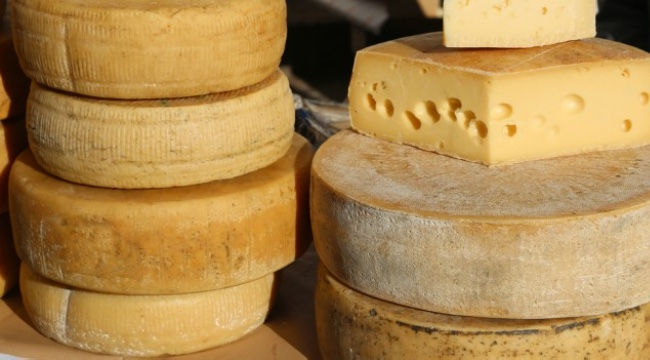
Barnard grew up in Fargo, North Dakota, an unusual place to imbue a person with a passion for veganism (he grew up with ranchers in the family, working at Micky D’s, and eating lots of roast beef and potatoes). But when he began researching the healthiest lifestyles and diets for his patients, he couldn’t get past the results he saw when people gave up meat and dairy, particularly cheese. Patients lost weight (and kept it off!) and saw improvements in conditions including asthma, fertility issues, and type 2 diabetes. The results were so staggering that Barnard adopted the diet himself and has become incredibly passionate about being vegan. He believes it is one of the best ways to live a healthy lifestyle.
So is it time to reexamine our dependence on cheese? We spoke with Barnard just days after his latest book was released — and before the townspeople stormed his stronghold with pitchforks — to discuss his research, why cutting out dairy might prolong your life, and whether it’s truly possible to go from being a die-hard cheesehead to someone who crumbles avocado on their salads as a suitable replacement for feta and bleu. Here’s his case:
Cheese is incredibly fattening.
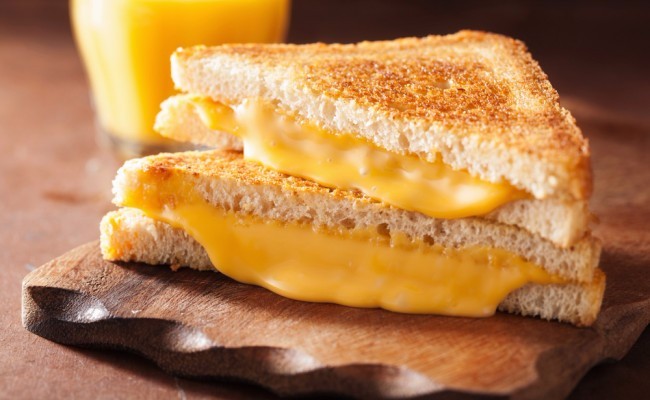
“Cheese is seventy percent fat,” Barnard says. “That’s just a fact, and it’s mostly saturated fat. Nobody argues with me when I say 2 ounces of potato chips has three hundred thirty milligrams of sodium, but 2 ounces of Velveeta has eight hundred milligrams of sodium. These things are all just fact.” And, Barnard continues, when you combine that with the fact that the average American consumes sixty thousand calories worth of cheese every year, you’re looking at a huge amount of extra fat in our diets.
With obesity continuing to go up in the U.S., Barnard says we have to look at the underlying factors. While some will point to our consumption of sugar as an obvious culprit, Barnard says the numbers there just don’t add up. Sugar consumption has actually decreased in the last 20 years, while dairy consumption has continued to rise along with those obesity numbers. For instance, in 1909 the average American consumed 3.8 pounds of cheese a year; by 2015 that number had gone to 35 pounds per year. So basically, we eat 10 times more cheese than our grandparents did, and when you pair that with the sharp spike in obesity over the last 100 years, a troubling correlation arises.
Barnard says that after analyzing data from many, many diets he found that plant-based diets offered the most consistent weight loss and maintenance results. He warns, though, that just giving up cheese isn’t enough. You have to watch that you aren’t replacing it with other lards and oils. Coconut oil, for instance, isn’t a healthy alternative in mass quantities.
Cheese causes joint pain and inflammation.
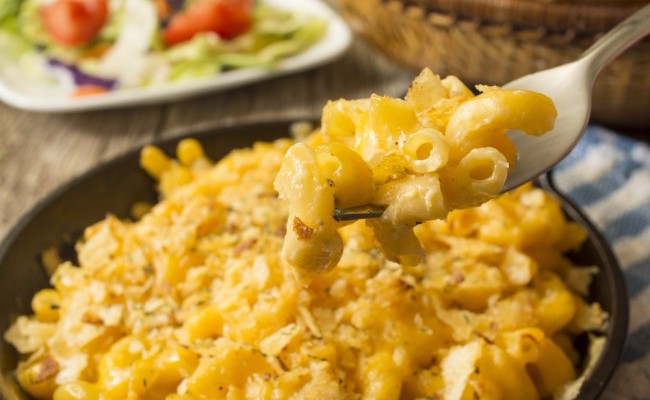
Barnard lays out his case for why cheese is causing our muscles to become inflamed: “What we believe is happening is, it’s not the fat, in this case. Or the hormones that are in it. We believe it’s the protein. The dairy protein causes the body to react as if it’s a foreign protein, which of course it is, and when your body makes antibodies, inflammation is set up.”
He uses examples of the many pro athletes who avoid cheese in their diets (due to inflammation concerns) as a case for why we should follow suit. Tom Brady, Aaron Rogers, Venus and Serena Williams, Scott Jurek, “they all got away from dairy a really long time ago,” Barnard says. “Those people, they don’t say, ‘Oh gee, I love it so much, I can’t live without it, I want to have it once a week.’ They say ‘to hell with it, get it off my training table because nothing tastes as good as a Super Bowl ring looks.’”
Cheese affects your brain very similarly to heroin.
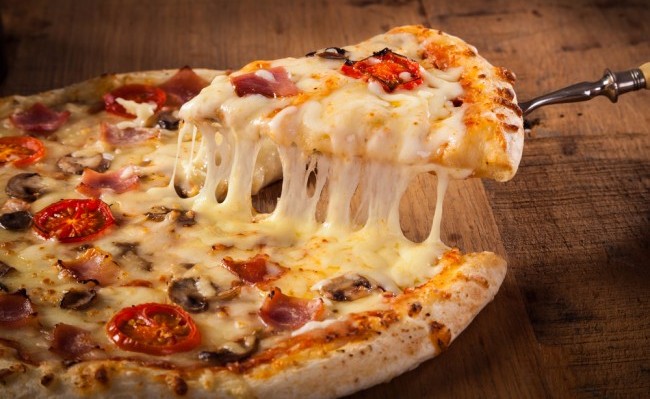
Although not as addictive as heroin, Barnard wants us to evaluate our consumption and dependence on cheese in a similar fashion. Do we crave it? Do we eat it in amounts larger than recommended? Do we want it even though we know it’s bad for us? Barnard says there’s a chemical reason why: cheese produces casomorphins, which affect your brain just like drugs.
“They come from casein,” Barnard says. “Casein is the main dairy protein, and so casomorphins end up in any dairy product. They’re in milk, but they’re concentrated in the cheese, which is why we believe cheese is more habit-forming than other dairy products.”
Basically, the casomorphins are strings of amino acids, and those strings pass into the brain, Then, when they get there, they attach to the same receptors that heroin would attach to. This makes your brain have pleasure and dependence reactions every time you take a bite of cheddar, just like it would if you were doing drugs.
Of course, no one’s saying casomorphins are as strong as the morphine you’d find in addictive drugs. In cheese, caseins have about 1/10th the binding power of pure morphine. So you probably aren’t going to be snorting cheese in the bathroom of a club anytime soon. But even at 1/10 the power, that’s still enough to be slightly addictive, and it’s the reason Barnard believes we keep coming back for more of the yellow stuff. It has just enough power to make us depend on the feeling it gives us.
There are substitutes that are both more satisfying and healthier than cheese.
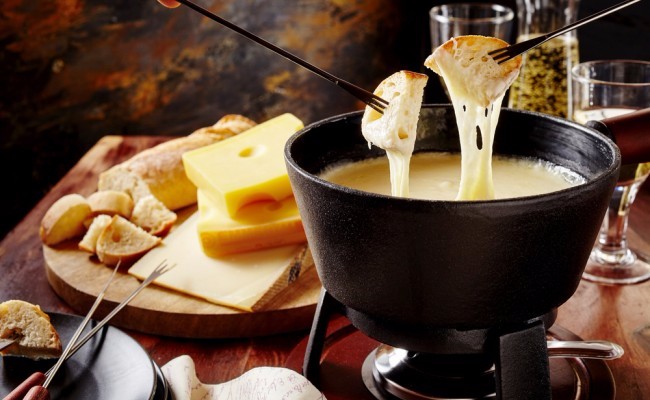
One fun thing about writing his book, Barnard says, is that part of it was research-based while the other part was coming up with recipes and substitutes that are just as satisfying as cheese. Nothing’s going to taste exactly like cheese, he says, but there are many products that can give you the extra flavor you crave without the unhealthy negatives.
Barnard trades crumbled Feta on salads for avocado chunks. “The avocado has all the mouth feel, it’s very tasty, but the saturated fat content is dramatically lower than the feta. So it’s a simple choice that you can make,” he says.
Barnard also suggests adding nutritional yeast to veggies and pizza. It’s all protein, has no fat, and adds a cheesy aroma and flavor to anything you sprinkle it on, he says.
And then there are vegan cheeses. Though you’ll probably need these a lot in the beginning of your cheese-less journey, Barnard says, you will probably need them less as you explore all the other flavors vegan cuisine has to offer. They’re a great way to transition, though, and Barnard calls them “cheese methadone” because they keep you from going through withdrawal without paying a high price.
Don’t like what’s already on offer? There are new vegan cheese options popping up every day. And as more people begin rejecting cheese, the business of coming up with a delicious cheese alternative has been booming. “Some of them are made from almond milk,” Barnard says. “There’s a brand called Kite Hill, which, I’ll tell you Whole Foods sells it, it’s a vegan cheese, but they don’t put it in the vegan case, they put it in the regular cheese case.” There are cashew based cheeses known for their great texture, and, as Barnard says, things you would never even think could be turned into cheese (including tapioca). It’s a brave new world out there for the vegan who still wants cheesy options.
You just have to try a 21-day cheese cleanse.
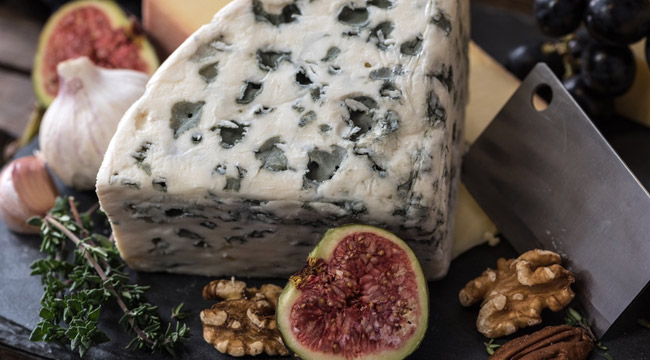
A cheese cleanse? It sounds terrifying, we know, but Barnard promises it won’t be as hard as you think. In fact, you might even start to prefer it.
It’s a promise we wonder if he can keep. We love cheese and so it’s hard to not to argue with him. But what about the French!? We say pulling out our book of excuses. They’re healthier than Americans and they eat bread, and wine, and cheese! Why can’t I do those things too!?
So here’s the important question that the good doc asserts: If we know cheese is bad for us, know that it’s causing weight gain (and a whole mess of other issues), and know that we eat too much of it — should we be eating it at all? Barnard says no, it’s too hard and too addictive of a food to keep in our lives in moderation. And the benefits of cheese (taste, mostly, and maybe calcium) are far outweighed by the consequences.
But seriously… has he tried fresh Parmesan?






